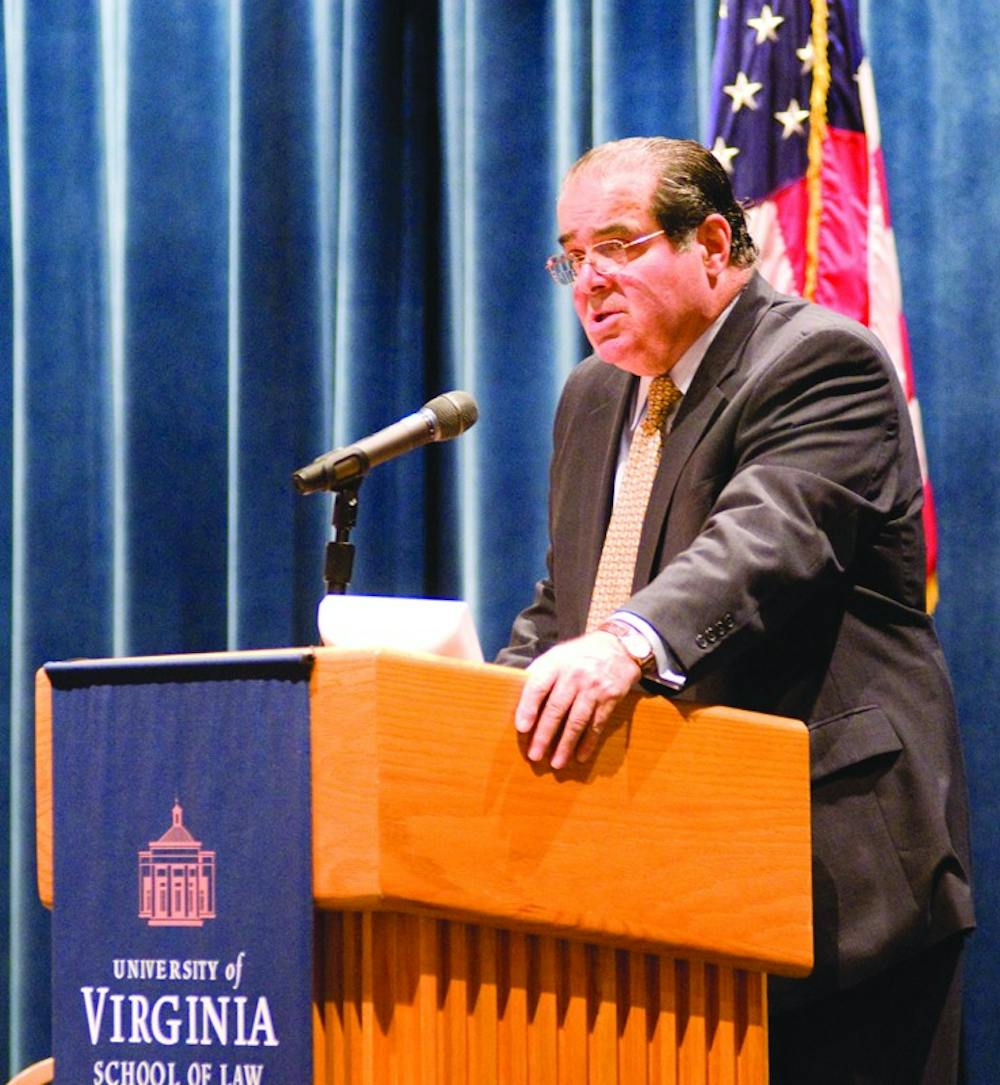Supreme Court Justice and former University Law professor Antonin Scalia spoke at the Law School Friday to present the 12th annual speech within the Henry J. Abraham Distinguished Lectures Series, which is sponsored by the Thomas Jefferson Center for the Protection of Freedom of Expression.
The annual lecture series began in 1999 and is dedicated to Abraham, a well-known politics professor at the University from 1972-1997. Scalia, who taught at the University just prior to Abraham from 1967-71, noted that he was both a "friend" and "fan" of the constitutional law scholar.
In his lecture, Scalia discussed the merits of originalism as a method of constitutional interpretation. The originalist approach, he said, views the Constitution as no different from any other legal text, such as a statute.
"That is to say, the Constitution has a static meaning that does not change from generation to generation," though its provisions can be applied to new situations, he said, such as the prosecution of libel when disseminated over the radio or the Internet.
Originalism thus focuses on determining the original meaning ascribed to the Constitution, Scalia said.
"To begin with, I deny the premise that law has nothing to do with historical inquiry," he said.
This inquiry must be conducted in collaboration with lexicographers to determine the historical meaning of words and phrases such as "bear arms," Scalia said. In addition, scholars also must establish a broader historical context, partly by examining other contemporary legal precedents, including the English Bill of Rights and state constitutions.
"Historical inquiry into the original meaning is difficult," Scalia said. "I will stipulate that it is not [perfect]. The question is whether it's better than anything else."
Scalia contrasted historical inquiry with moral philosophy, which he said justices undertake when they attempt to determine how the meaning of the Constitution should "evolve" over time. In particular, he said history is far more objective than moral philosophy and noted that historical inquiry is essential to any consideration of law.
"No history faculty of any work would consider itself complete without legal experts, and no law faculty would consider itself complete without historians," he said, discussing the way the fields are interrelated.
The material in historical amicus briefs - much of which is submitted by legal historians - can contribute greatly to the quality and accuracy of originalist interpretation, Scalia said, though he noted he maintains some distrust when academics claim to be disinterested scholars.
"Originalism is not a guarantee against willful abuse, but originalism does not invite [a justice] to make the law what he thinks it should be, nor does it permit him to distort history with impunity," Scalia said. "The historical evidence will sometimes be indeterminate ... But it is not infinitely malleable. The honest originalist will sometimes, indeed often, reach substantive results that he does not personally favor."
Fourth-year College student James Pogue, an intern with the Thomas Jefferson Center for the Protection of Free Expression, said Scalia's appearance was a sign of respect, particularly "the respect that he has for [Henry J. Abraham], and he was willing to come here and speak on his behalf"







